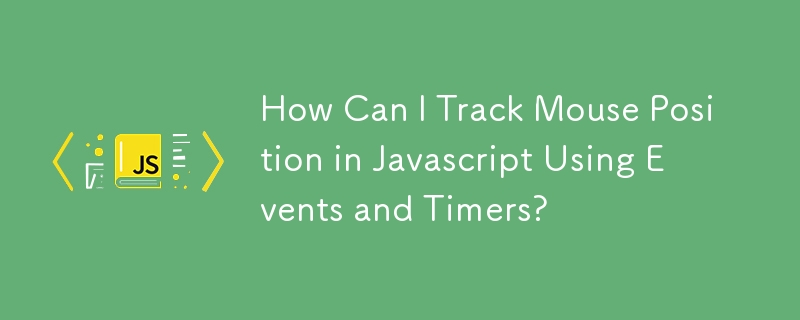

In Javascript, tracking the mouse position periodically requires subscribing to the mousemove event.
The most common method involves using the mousemove event handler. Here's a code snippet:
document.addEventListener('mousemove', (event) => {
// Event details...
});Within the event handler, you can access the mouse's X and Y coordinates via event.clientX and event.clientY.
Note that the mousemove event bubbles. This means that if you attach an event handler to the document object (as seen above), you'll receive events even when the mouse is outside of visible elements. You can opt to attach event handlers to specific elements instead, if desired.
For a timer-based approach, you can combine the mousemove handler with state variables and setInterval. This ensures that you retrieve the mouse position periodically, regardless of mouse movement.
let mousePos;
document.addEventListener('mousemove', (event) => {
mousePos = {
x: event.clientX,
y: event.clientY
};
});
setInterval(() => {
// Use mousePos.x and mousePos.y
}, 100); // 100ms intervalNote that retrieving the mouse position solely through timers is generally unreliable. You must first have an event trigger before obtaining accurate data. Furthermore, excessive polling can strain browser performance, especially in older versions. Keep your processing code minimal within these event handlers.
The above is the detailed content of How Can I Track Mouse Position in Javascript Using Events and Timers?. For more information, please follow other related articles on the PHP Chinese website!




